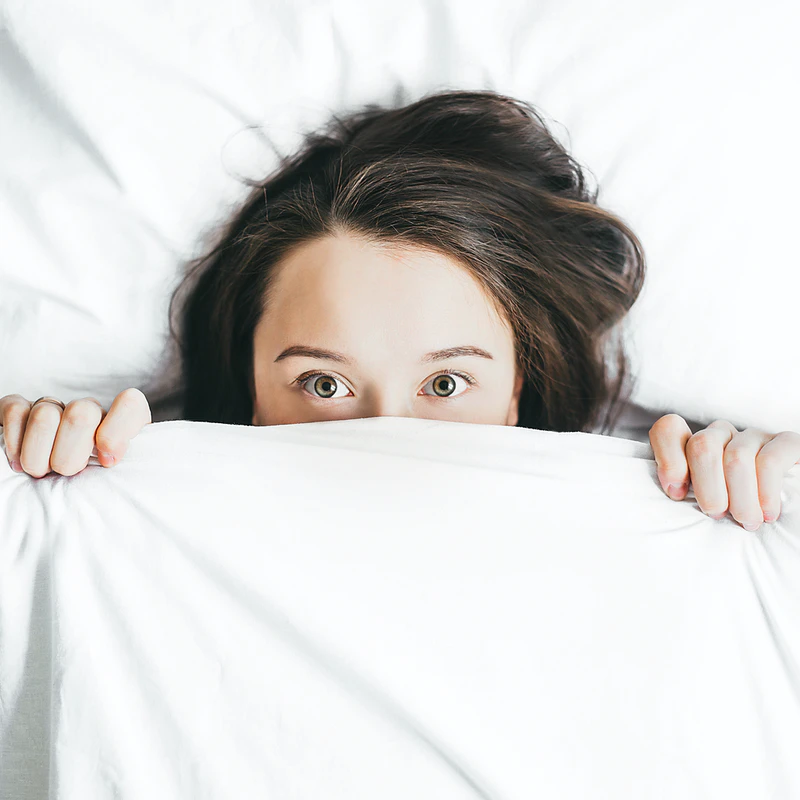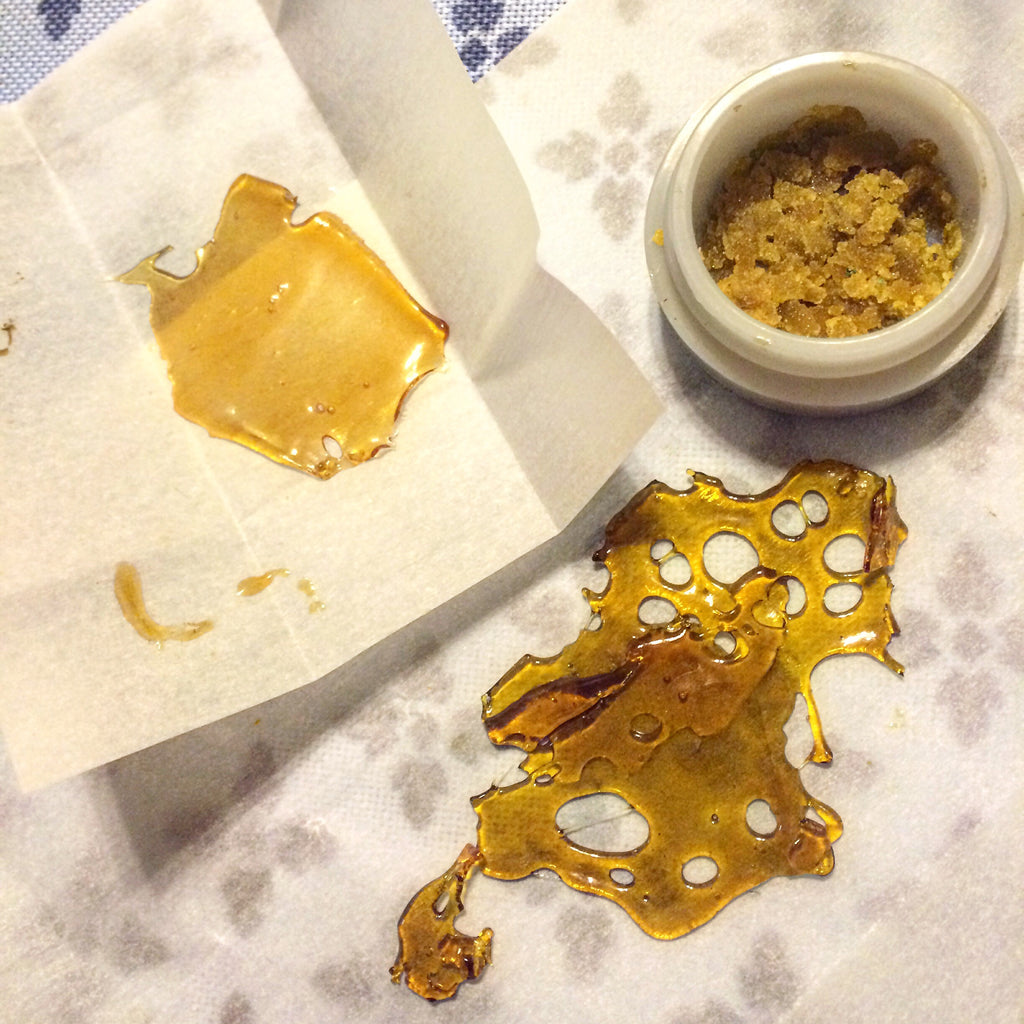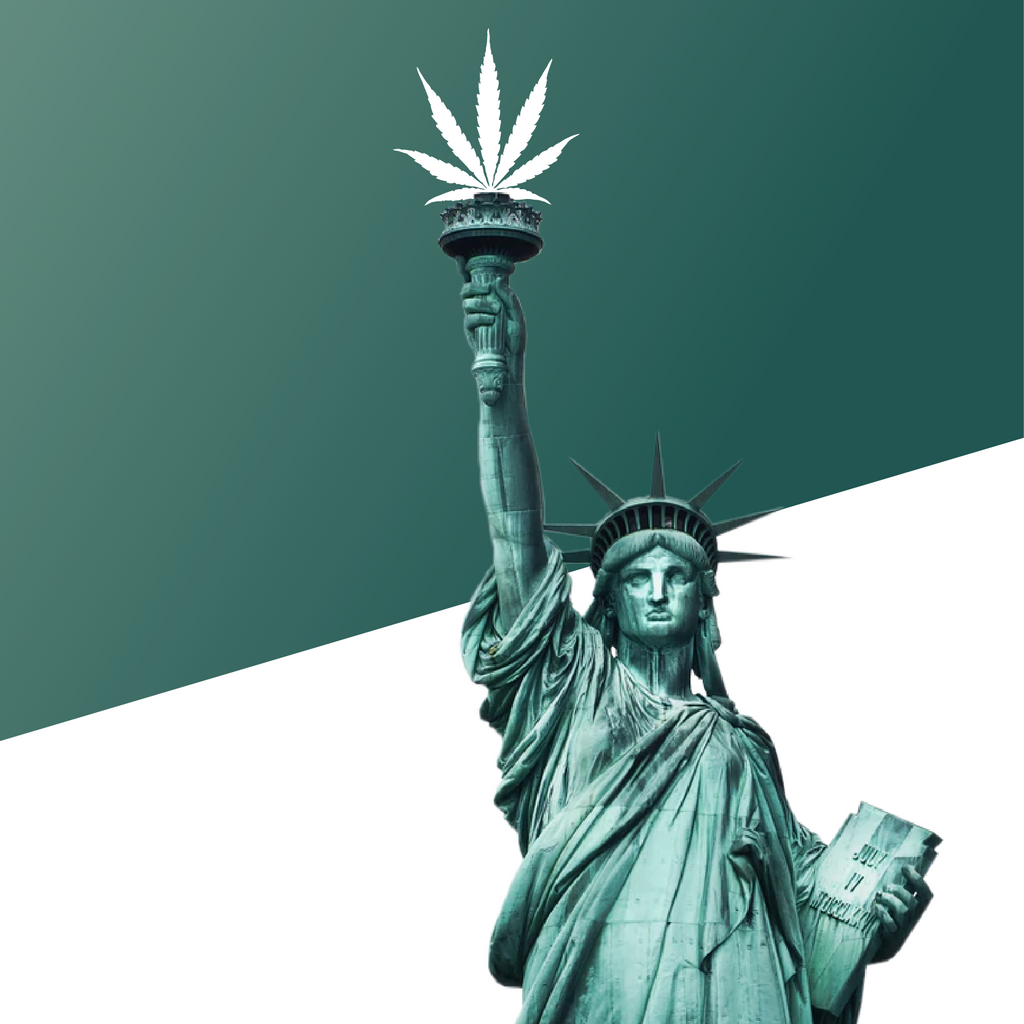The Coffee & Cannabis Connection

Sleeping plays a massive role in our overall well-being. Of course, it’s one of the most effective ways to rejuvenate and prepare the body for a new day.
But did you know there are a number of substances that could actually counteract your efforts?
Caffeine, cannabis, and sleeping …
What could these things possibly have in common?
I’ll tell you what — they all make your life far more interesting! Let’s take a look at where each of these fit into our lives:
Since we're living in a modern, rushing world where pressure stares us in the eye day after day, we humans are trying to find a way back to a simpler, calmer life.
We all have experienced some form of anxiety or medical issue caused by everyday stress.
It doesn't matter how mindful you are; there will be moments in life when your "zen" is going to be challenged.
One of the most common issues caused by stress is insomnia.
Sleeping plays a massive role in our overall well-being. Without healthy, restful sleep, we become fatigued, and it becomes hard to concentrate.
We get easily irritated, and that causes even more stressful situations, not to mention the adverse effects it has on our body internally. Our biorhythm can be completely thrown off by lack of sleep.
So, what do we do?
To improve focus and performance, we drink coffee, and if we feel we need to wind down to get a good night's sleep, we might turn to cannabis.
Both are natural substances that can have plenty of health benefits, but how do they work when we combine them?
Let's see if we can benefit from the interaction of caffeine and marijuana or if we should mix them at all?
The science of sleeping

Before we jump to conclusions, we need to understand better what's happening during sleep, what good sleep really consists of, and how sleep cycles work.
An adult needs an average of 7-8 hours of restful sleep per night.
There is a difference, though, between a full restful sleep or being "unconscious" for 8 hours.
Ideally, we need to go through 4 stages of sleep without interruption to get quality rest.
1. NREM(non-rapid eye movement sleep): This is the part when you are falling asleep, your muscles are still active, and you are still sensing your environment and its distractions. This phase lasts from 5 to 10 minutes.
2. NREM2: On your way to deep sleep, you cannot respond to environmental distractions anymore. This stage can last for 10-25 minutes.
3. NREM3: Known as "slow-wave" or deep sleep. Distractions around you can't bother your rest, and it is harder to wake up. If your seep were interrupted, you would feel dizzy and disoriented waking up from this stage. This is the most restful stage as well. Also, your body is doing important work in this stage: tissue repairing and growing, muscle and bone getting built, the immune system is getting stronger.
4. REM (rapid-eye-movement sleep): NREM3 drifts into the 4th stage, the "dream state." Muscles are known to become paralyzed in this stage. Breathing and heart rate become unregulated and often comes along with vivid dreams. In this phase, your brain is getting stimulated, which helps with learning.
The four cycles take up a total time of 90 minutes, and in 8 hours of sleep, we go through the whole process about 4-5 times.

Side Note: If you want to improve your sleep, give it a shot and try to sleep in 90-minute cycles, meaning, instead of 8, pick a number that can be evenly divided by 1.5. So try to sleep either 7.5 hours or 9.
Have you ever experienced that you might wake up feeling fresh and bright before the alarm goes off?
So you think you are just going to stay in bed, close your eyes, and relax until the clock goes off?
Then when it is time to wake up, you slept 10 -20 minutes more and feel drained and exhausted. This could be because of the sleep cycles.
10 Things to do to improve the quality of your sleep
1. Avoid consuming products that contain caffeine 6 hours before your bedtime. Don't forget; caffeine can be in more than just coffee. It can be found in dark chocolate, certain teas, sodas and energy drinks, etc.

2. Try to avoid looking at a TV or smartphone screen for 1-2 hours before bedtime. The blue light emitted by electronic devices suppresses the release of melatonin, a hormone that prepares our brain for sleep.

3. Avoid eating heavy meals 2-3 hours before going to bed. A light bedtime snack may be all right that should consist of fiber, protein, and healthy fats.
4. Have the right temperature setting. Sleep experts recommend your bedroom temp to be between 60 and 67 degrees Fahrenheit for the best quality sleep.
5. Be consistent. Going to bed and waking up at approximately the same time every day is known to improve the quality of your sleep, and it helps with falling asleep faster. Make a habit out of great sleep.

6. Avoid exercising 2-3 hours before your bedtime. Exercise is super healthy when done at the right time, but you should avoid it right before sleep since it increases certain bodily functions.

7. Have a routine. Having a kind of bedtime ritual every evening teaches your brain to prepare for bedtime and makes it that much easier to fall asleep. It can be anything, as long as you avoid activities that wind you up.
8. Set your phone to DND (do not disturb) mode 1 hour before going to bed.
9. Avoid stress. Try to make a habit out of winding down before you go to sleep by not allowing yourself to take in any stressful input like the news or movies and music that increases adrenalin.
10. Practice mindfulness. Try adding a meditation session or reading before going to sleep to calm your mind and body.
Caffeine - pros and cons

Caffeine is a chemical compound, just like CBD and THC, and is found in many different plants.
For herbs, caffeine acts as a pesticide, but in humans, it is creating an energizing effect by stimulating the central nervous system (CNS). This energizing effect fights fatigue and promotes alertness.
Our daily caffeine intake shouldn't be over 400 mg, but it is quite hard to stick with this number since coffee is not the only thing containing caffeine.
However, a shot of espresso only contains 77 mg.
Other products like tea, energy drinks, cocoa, ice cream, soft drinks, and cereal also can contain caffeine, which can easily sneak an extra dose of caffeine into your diet.
The way coffee affects you greatly depends on your body and your tolerance. Some people claim they can fall asleep easily even after a late afternoon espresso shot.
Others are getting shaky and experiencing rapid heart movement from just a tiny amount of caffeine.
But coffee is not all bad. However, your body can easily build up a tolerance; just like with other things, good quality coffee in moderation can be beneficial.
Coffee is rich in antioxidants. It may promote heart health, reduce the risk of cancer, prevent type2 diabetes, and induce weight loss.
Researches are all but in agreement about how coffee can affect sleep. Some studies say it does not affect others at all; others believe it can cause insomnia and reduce the quality of sleep cycles.
This, again, depends entirely on your personal chemistry, but age, gender, fitness, and digestion can largely affect how you react to caffeine, specifically to coffee.
Generally, when you drink a cup of coffee, 95% of caffeine is absorbed in 45 minutes, and it will break down in the next 4-6 hours. People with slower metabolism can experience its effect even for 10 hours.
According to studies, caffeine won't affect REM sleep; however, it may have an effect on NREM sleep cycles. Since it is a stimulant, it can disturb your first cycle, making it difficult to fall asleep. You won't even reach the deep state of sleeping; instead, you are just tossing and turning. It has the potential to ruin your whole night.
Cannabis pros and cons

The Cannabis plant has different varieties that produce multiple effects on the body. Some are calming and relaxing; some are rather energizing.
The effect of different strains depends mainly on the content of chemical compounds, like cannabinoids and terpenes.
The two main cannabinoids that are most often studied are CBD (Cannabidiol) and THC (Tetrahydrocannabinol).
Both CBD and THC can have medicinal benefits, but CBD is mostly known as a body relaxant that is non-psychoactive. THC is famous for its mind-altering effects.
Cannabis can be an amazing substance if you utilize it with care.
Just the right amount may boost your body's natural healing process by interacting with the Endocannabinoid system, which is responsible for keeping homeostasis.
Anti-inflammatory properties, pain relief, calming effect, just to mention a few of the benefits.
On the other hand, choosing a high THC strain can result in such a head-high that affects your judgment or reducing your decision-making abilities. If you are too sensitive to THC, it may cause anxiety as well.
According to studies, cannabis can be effective in treating insomnia. However, you need to find the perfect CBD-THC ratio that works for you.

This can work two ways. Strains with a higher THC to CBD ratio might reduce the amount of REM sleep.
The thought behind this is that if you suffer from PTSD or just simply nightmares that disturb your sleep cycle, less REM sleep time can be helpful. You stay longer in a deep sleep state, which can result in more restful sleep.
In cases like anxiety, stressful life, where you just couldn't shut your mind off, cannabis can work as a relaxant. Easing your mind and body and relieving stress, cannabis can help you to fall asleep easier.
The main Marijuana strains are Indica and Sativa and/or hybrid.

Generally, India is considered to have soothing, relaxing effects, while Sativa is energizing.
Hybrid strains are the mix of the previous two, and they really help to customize your cannabis experience.
When you use cannabis to treat your insomnia, it is important to take the right amount at the right time.
Probably one of the best ways to consume cannabis is vaporizing it.
By vaping, your lungs absorb the cannabinoids without the harmful chemicals and byproducts of smoking and combustion. A vaporizer heats up your substance to just the right temp, where the active ingredients evaporate and can be inhaled.
Vaping has a great bioavailability rate of up to 55% and takes about 10-20 minutes to kick in. This is a great way to monitor your intake and timing it when it is the best for you.
Mixing cannabis and caffeine
There could be many reasons why you would want to mix cannabis and caffeine.
Are you drinking CBD coffee in the morning?
Love your cup of Joe, but also medicating with cannabis?
Did you just drink way too much coffee that day and trying to even out its effect before bedtime?
All the situations mentioned above are real and part of everyday life. So let's see what should you expect when the two substance interacts in your body.
Unfortunately, there aren't much researches on the interaction of caffeine and cannabinoids, but from the little, we have it seems that they have some peculiar effect when the two are combined.
While you have experienced that coffee sometimes is able to help you pull it together even after a few drinks, according to the studies, this is not the case when it's combined with cannabis.
A 2014 study conducted on animals suggested that a low amount of caffeine actually enhanced the high caused by THC. According to this, you can get away with consuming less cannabis by boosting it with a little bit of coffee. This study also had a result showing that a lot of caffeine can tone down the effect of marijuana, resulting in using more cannabis.
Another study in 2012 was monitoring THC and caffeine's effect on rats. It seems that caffeine and a low amount of THC would impair memory more than a high dosage of THC by itself. However, there are no human studies just yet. It appears that caffeine would still increase the effect of THC.
So how does that translate to sleeping? Since there is no hard evidence and our bodies' chemical profile can vary, we can just guess and mostly do our own experiments.
Conclusion
Even though a small amount of caffeine might enhance the effect of cannabis, it is still not a promise that marijuana would enhance the specific effects that you need to get a good night's rest.
If you are trying to improve your sleeping pattern, it might worth considering lowering your coffee intake. Since coffee stays in your body for a long amount of time, try not to drink any caffeinated drink afternoon. If you feel like cannabis can be the answer to your insomnia, you might consult with a doctor, but at least visit a dispensary and ask for help and suggestions.
If you choose the latter approach, consider vaping over edibles or another form of cannabis. Edibles bioavailability rate are lower than vaporizing; it takes longer to kick in, and also their effect lasts way longer, so you might even wake up the next day feeling sluggish and sleepy.
Don't be afraid to experiment, but just take it slow and see how your body reacts. And if your main goal is to get better sleep, try to eat healthy, exercise, drink plenty of water, and choose the kind of cannabis strain that helps you keep a nice balance.





